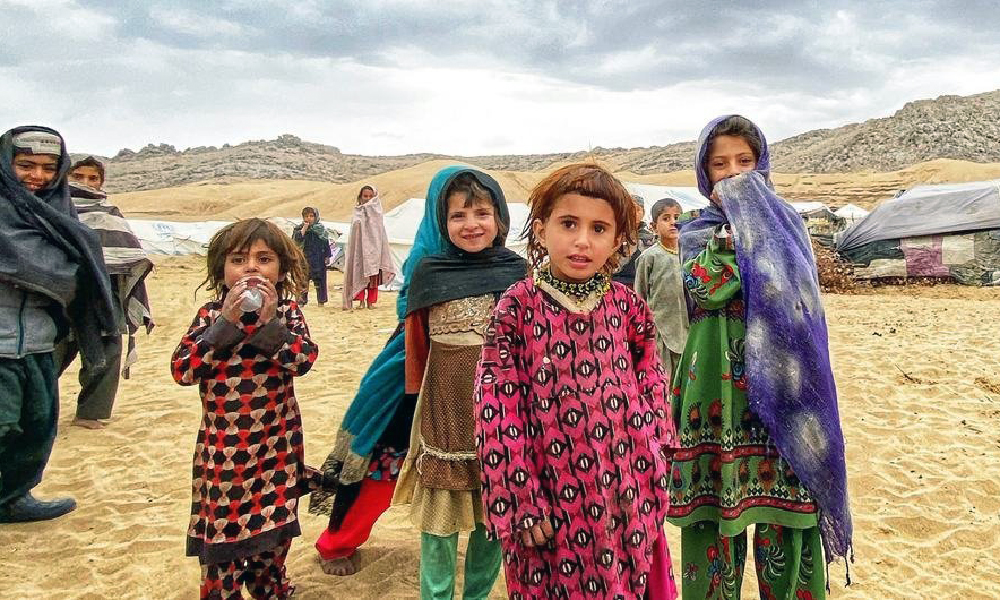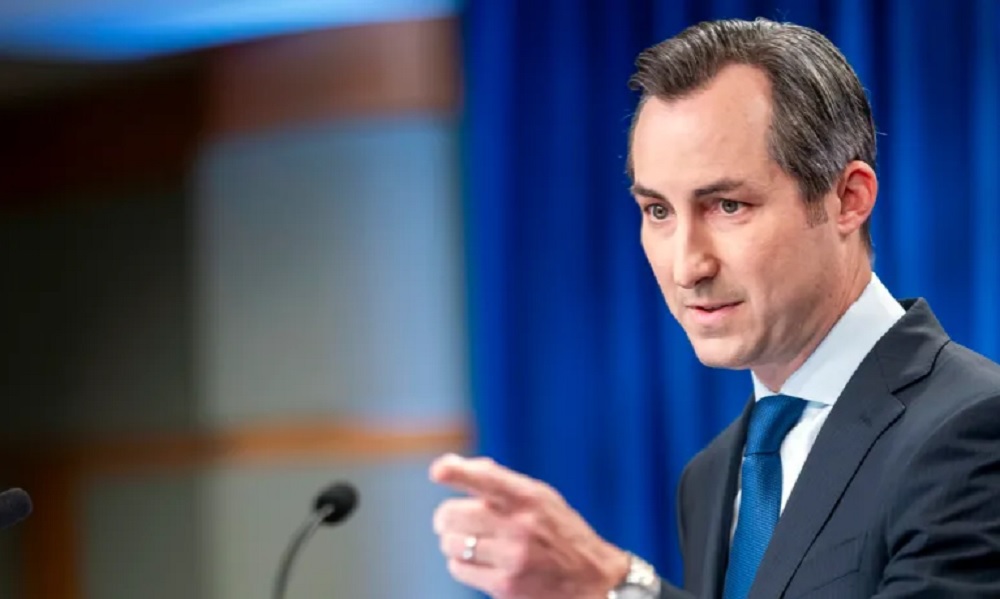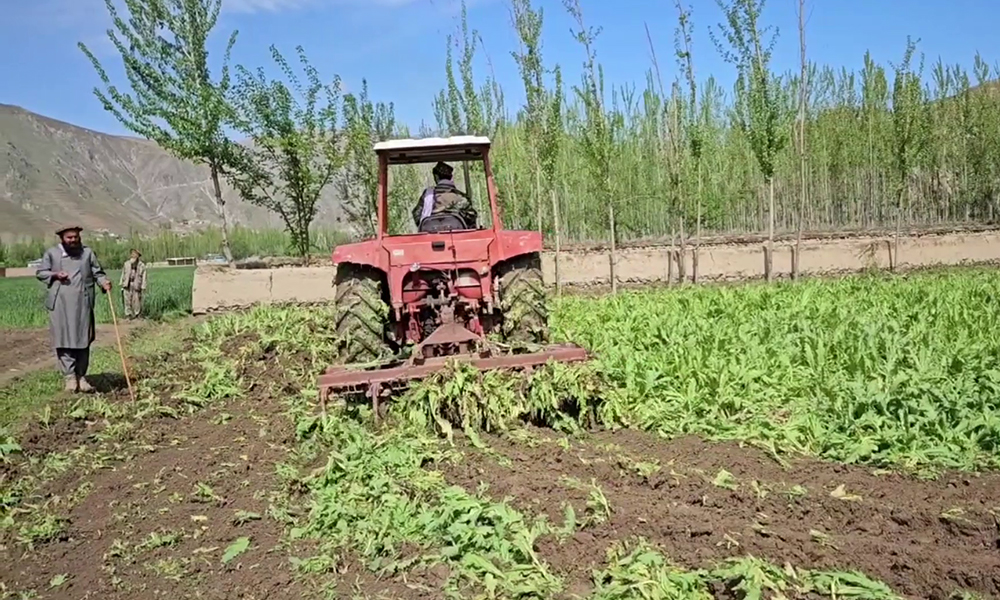Latest News
Most Daesh fighters in Afghanistan are TTP fighters: US General

 Nearly 70 percent of the Daesh fighters in Afghanistan are Pakistani Taliban who joined Daesh after having been forced out of their country, says a top US General.
Nearly 70 percent of the Daesh fighters in Afghanistan are Pakistani Taliban who joined Daesh after having been forced out of their country, says a top US General.
General John Nicholson, who is the commander of the US and NATO forces in Afghanistan, said that a dozen terrorist groups were still operating in Afghanistan, despite of his country fighting in Afghanistan for 15 years.
“In the case of Islamic State Khorasan province, the majority of the members are from the Tehreek-e-Taliban Pakistan (TTP),” said the general while briefing Washington-based journalists at the Pentagon earlier this week. Many of these terrorists were forced out of Pakistan by the Zarb-i-Azb military operation, he added.
Gen Nicholson said that many IS fighters in Nangarhar province came from Pakistan’s Orakzai tribal agency. “And they were former members of the TTP, complete with their leadership, who wholesale joined Islamic State, pledged bayt (allegiance) to Islamic State and joined them earlier this year,” he said, adding that 70pc, roughly, of those fighters were from the banned TTP and many of them were Pakhtuns from Orakzai.
Gen Nicholson said the IS, also known by Arabic acronym Daesh, militants were exporting their radical ideology from their bases in Iraq and Syria to Afghanistan and other countries in the region.
“Daesh is only one of nine US-designated terrorist organizations here in Afghanistan,” he said. “Additionally, there are three other violent extremist organizations.”
Alarmed by the increasing influence of these militant groups, the United States recently resumed its air strikes in Afghanistan.
“These groups are the principal focus of our counterterrorism mission,” Gen Nicholson said, adding that besides Daesh and the Afghan Taliban, the Pakistani Taliban and the Islamic Movement of Uzbekistan were also operating. Some fighters from both groups have now migrated over to join Daesh.
Gen Nicholson said Daesh was involved in last Saturday’s attack in Kabul that left more than 80 civilians dead. He said Daesh controlled around 10 districts in Nangarhar province in December last year. But since January, when President Barack Obama authorized US forces to participate in counterterrorism attacks, the group has been forced to retreat from some of the areas.
Gen Nicholson said the increasing influence of Daesh in Afghanistan had also led to clashes between them and the Afghan Taliban, contributing to Daesh’s retreat from some areas. “So, now since January, their area has shrunk to parts of three or four districts in southern Nangarhar.”
He said the US forces were now working with Afghan security forces to reclaim significant portions of the territory that was previously controlled by Daesh. Many Daesh commanders and soldiers were killed in these joint operations and their key infrastructure capabilities and logistical nodes were destroyed, he added.
“Daesh fighters are retreating south into the mountains of southern Nangarhar. We will continue to stay after Daesh until they are defeated here in Afghanistan,” Gen Nicholson said.
He explained that this “critical fight” was part of a larger global strategy against the IS and coincided with ongoing operations in Iraq and Syria. He said there were an estimated 3,000 IS fighters in Afghanistan in January, many of them members of other terrorist groups that changed allegiance.

Latest News
250,000 Afghan children need homes, food, education after returning from Pakistan

In the wake of an announcement by Pakistan that it intends to start Phase Two of deportations of Afghans, Save the Children said Thursday that almost a quarter of a million Afghan children need proper homes, food, and access to education after returning from Pakistan in the past seven months.
In a statement issued by the organization, Save the Children said more than 520,000 Afghans have returned from Pakistan since September last year, after Pakistan said all undocumented foreigners must leave the country voluntarily or face deportation.
Nearly half of all the returnees are children.
A survey by Save the Children of families who have returned to Afghanistan – and the communities who are hosting them – found that nearly all (99%) do not have enough food for the next one to two months.
About three-quarters of returnees and families in host communities reduced portion sizes or restricted the food consumption of adults so small children could eat.
About 40% of returnees and host families surveyed had to borrow food or rely on friends and relatives for at least three days a week – with 13% of returnees and 9% of host families saying they had to get food from others every day.
Almost 8 million children in Afghanistan – or one in three – are facing crisis levels of hunger.
Nearly one in six families live in tents, according to the survey, with most returnees having little or no means to support themselves.
Only a third had managed to bring assets back with them from Pakistan.
Nearly half (47%) said there were no jobs available in Afghanistan, with 81% saying that they do not have any skills that could lead to employment.
Almost two thirds (65%) of children who have returned to Afghanistan have not been enrolled in school. The majority (85%) told Save the Children that they don’t have the necessary documents to register and enroll in school.
In Pakistan, more than two thirds of these children had been attending school.
Arshad Malik, Country Director for Save the Children in Afghanistan, said: “Families are returning to Afghanistan with virtually nothing. Most are relying on relatives or friends to support them – and these communities already have little to support themselves.
“The return of so many people is creating an additional strain on already overstretched resources. Children need support and stability. Many undocumented Afghan children were born in Pakistan – Afghanistan is not the place they call home,” he said.
He added that in addition to the returns from Pakistan, 600,000 Afghans arrived from Iran last year. Also, “families have been forced from their homes by multiple disasters, including the series of earthquakes in Herat and the ongoing drought. Afghanistan is also now home to the second largest number of internally displaced people in the world – or roughly 1 in 7 people,” Malik said.
According to him, Afghanistan not only needs urgent funding from international donors and governments – but also needs long term, community-based solutions to help all displaced Afghans rebuild their lives.
Latest News
US asks IEA to ensure Afghan soil not used by terrorists

The US State Department on Thursday asked the Islamic Emirate of Afghanistan (IEA) to ensure that Afghanistan is not used to support terrorist groups, movement of terrorists or acts of terrorism.
A State Department spokesman told Geo News that Washington has “been very clear that we will judge the Taliban (IEA) by what they do, not what they say.”
“The Taliban (IEA) wants international legitimacy. This requires the Taliban (IEA) to meet their commitments to the international community,” the official said.
The spokesperson said the most enduring interest for the US in Afghanistan was to ensure that it never again became a safe haven for terrorists, especially for those who wished harm to the US or its partners or allies.
“We are in regular communication with Pakistani leaders as a part of our partnership on counterterrorism issues. We continue to discuss Afghanistan in detail, including through our annual counterterrorism dialogue and other bilateral consultations,” the official said.
Islamabad has time and again urged Kabul to take meaningful action against terrorists using Afghan soil to launch attacks inside Pakistan.
However, the IEA has repeatedly rejected claims of militant groups in the country and have said they will not allow any group to threaten a country from Afghanistan.
On Tuesday, the Pakistan Army’s top commanders were briefed on how terrorist groups operating from Afghanistan pose a threat to regional and global security, besides acting as proxies against Pakistan and its economic interests, especially the China-Pakistan Economic Corridor (CPEC).
A day ago, the Inter-Services Public Relations (ISPR) said security forces had killed seven terrorists trying to infiltrate the Pakistan-Afghanistan border in the North Waziristan district.
In a statement, the military’s media wing had said the security forces on April 16 had detected a movement of a group of seven terrorists near the border in the Spinkai area of Ghulam Khan in the tribal district, Pakistan’s The News reported.
Latest News
Over 6,000 acres of land cleared of poppies in Badakhshan

Badakhshan Police Command says it has cleared more than 6,000 acres of poppy fields in northern Badakhshan province.
The anti-narcotics department of Badakhshan Police Command says that since the beginning of the campaign to destroy the poppy fields in this province, they have cleared more than 6,000 acres of land.
According to these officials, poppies have however been planted in more than 10 districts this year.
The anti-narcotics department of the Badakhshan Police Command says that the campaign to destroy the poppy plantations started two months ago and continues.
According to the officials, during this period, 6,300 acres of land has been cleared.
Some of the farmers whose fields were destroyed say that poppy is more profitable than other agricultural products, but now that their land has been cleared, they want alternative crops.
According to the officials, Kishim, Argo, Darayimand and Jurm districts are among the districts where poppies are cultivated.
-

 Sport5 days ago
Sport5 days agoACL draw to be broadcast live on ATN channels
-

 Sport4 days ago
Sport4 days agoACL fever grows as fixtures finalized
-

 World4 days ago
World4 days agoUS will not take part in any Israeli retaliatory action against Iran
-

 Latest News4 days ago
Latest News4 days agoOver 50 people dead in traffic accidents over Eid
-

 Latest News4 days ago
Latest News4 days agoUS identifies Kabul airport suicide bomber
-

 Business4 days ago
Business4 days agoAfghanistan-Kazakhstan chamber of commerce opens in Herat
-

 Latest News4 days ago
Latest News4 days agoGood rains enable DABS to increase power production in Kabul
-

 World3 days ago
World3 days agoIsraeli military vows response to Iran attack as calls for restraint mount
















